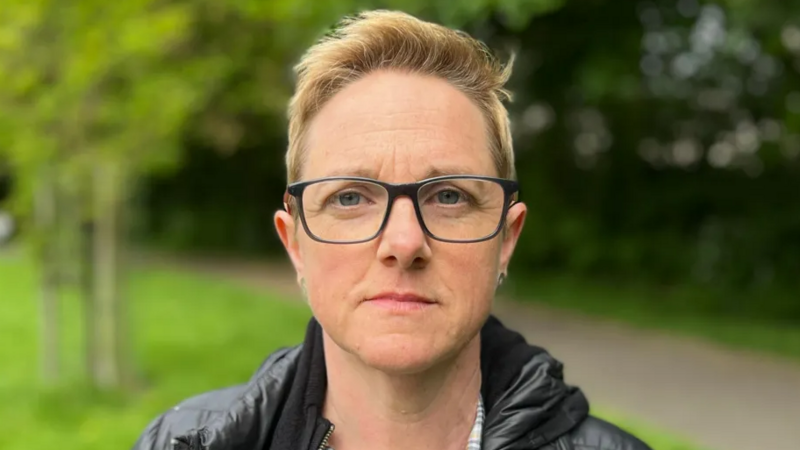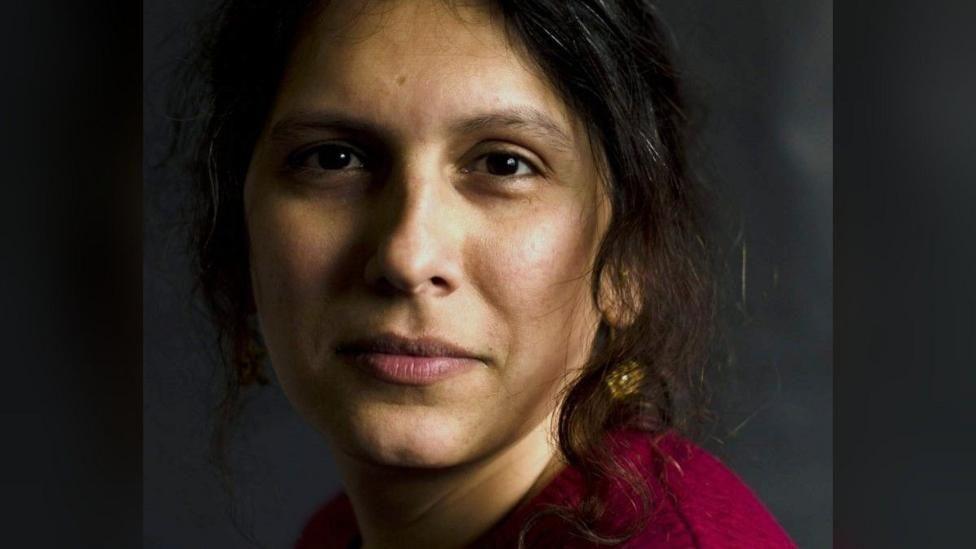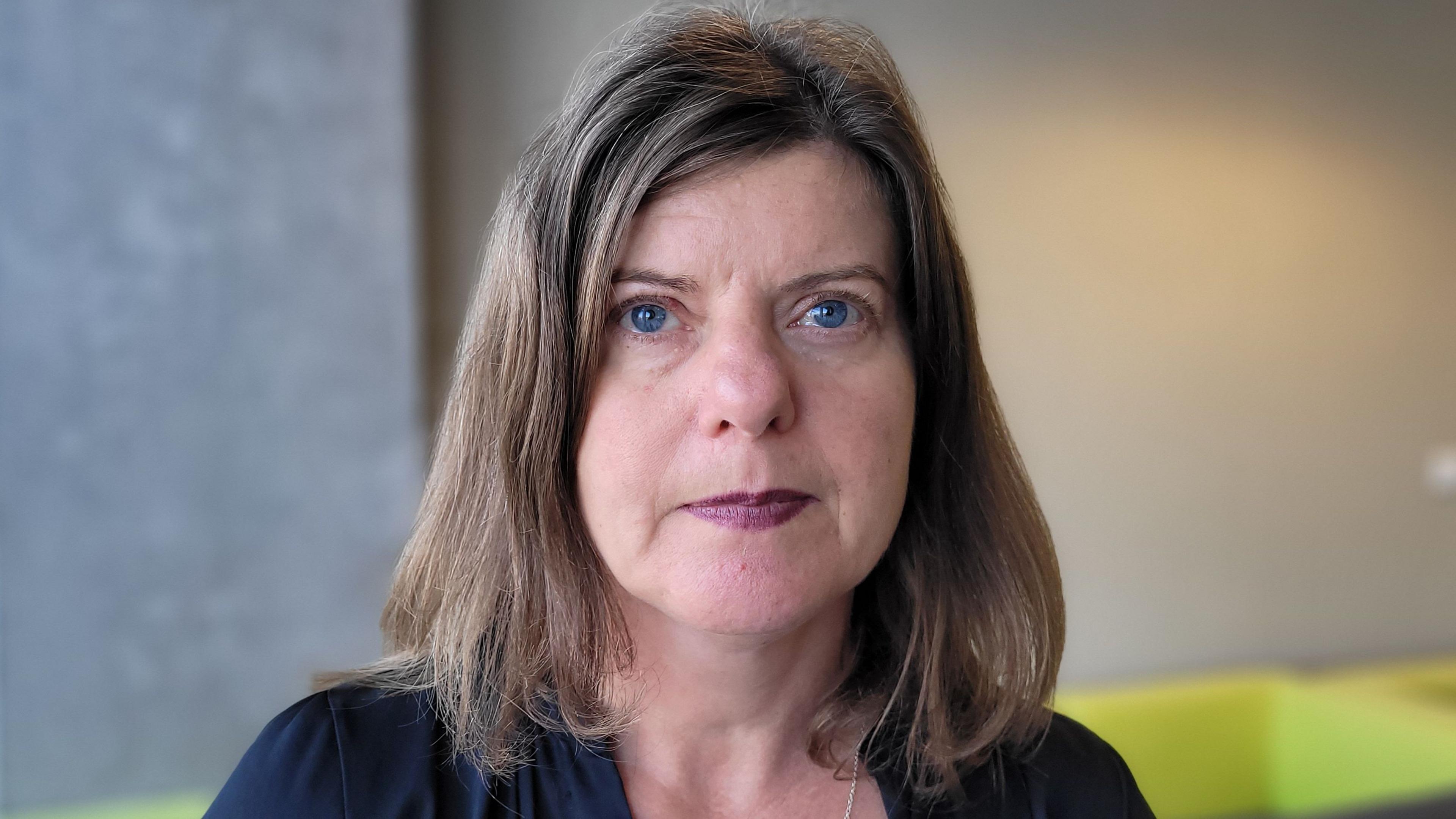Rape crisis worker unlawfully dismissed to get £70k

A tribunal ruled that Roz Adams had been unlawfully dismissed over her gender-critical views
- Published
A rape crisis centre in Edinburgh must pay nearly £70,000 and publicly apologise to a worker constructively dismissed over her gender-critical beliefs.
The payment to Roz Adams from Edinburgh Rape Crisis Centre is nearly double the amount previously anticipated.
A tribunal ruled earlier this year that the centre had unlawfully discriminated against Ms Adams, saying that management had conducted a “heresy hunt” against her.
Ms Adams said she was "grateful" for the decision and that it should lead to "meaningful change" being enacted by her former employer.
She has said it is her belief that people using a rape crisis centre should have a choice over who they receive support from on the basis of sex, and that sex is binary and "everyone is either male or female at that level".
Judge Ian McFatridge ruled that the centre must publish an apology to Ms Adams on its website, external and that it must refer sexual assault victims to Beira’s Place, the Edinburgh women’s refuge where Ms Adams now works.
'Bridges being built'
Ms Adams said: "It is more important to me that there is now meaningful change at ERCC, as well as at Rape Crisis Scotland and the Scottish government.
"My priority remains that all victim-survivors of sexual violence can make a genuinely informed choice about the service they seek and have confidence in who will support them.
"To restore that confidence, I urge these organisations to give a clear definition of ‘woman’."
She added she was encouraged by representatives of ERCC meeting staff at Beira’s Place recently, and that this could lead to "bridges being built".
The compensation will be covered by the ERCC's insurance policy.
The rape centre stated it was "striving to improve" and already acting on recommendations made in a recent report.
A spokesperson stated: "We recognise that during the employment tribunal with Roz Adams we did not act in the right way. We want to publicly apologise, and we understand that Roz’s actions were not motivated by transphobia, but by a genuine wish to act in the best interests of service users.
"We should have listened more to Roz’s concerns and never pursued disciplinary action and for that we are sorry."
Apology 'defective'
Judge McFatridge ruled it was "extraordinary" that ERCC had not referred any victims to Beira’s Place and that this seemed "linked inextricably with the matters which led to the discrimination against the claimant".
He stated that ERCC management appeared to consider the gender-critical views of Beira’s Place - funded by the author and gender-critical campaigner JK Rowling - to be "intrinsically hateful and transphobic".
ERCC previously sent Ms Adams a letter in September saying it apologised for "for the discrimination you faced while working at ERCC and for the stressful process you have been through".
However, Ms Adams argued this was not satisfactory, as it did not clear her name publicly, and that the apology was based around language used.
Judge McFatridge agreed, calling the apology "defective" and stating it was a fact that "nothing the claimant did constituted bullying or harassment".
Ms Adams said that without a public apology she feared being seen as transphobic as she continued to work in the sector.

Mridul Wadhwa resigned in September from her post
The tribunal in May ruled the decision to launch a disciplinary process against Ms Adams was because the centre's management wanted to make an example of her because of her gender critical beliefs.
Ms Adams' view was that people using the centre should have a choice over who they receive support from on the basis of sex, and that sex is binary and "everyone is either male or female at that level".
Those beliefs clashed with the views of Mridul Wadhwa, the centre’s chief executive who has since resigned from the role.
Much of the tribunal centred on a disciplinary process that began after Ms Adams sought clarity on how to respond to an abuse survivor who wanted to know if a support worker who identified as non-binary was a man or a woman.
Some people who do not consider themselves to have a solely male or female gender identity describe themselves as non-binary.
Ms Wadhwa – a trans woman - stepped down from her job in September after a Rape Crisis Scotland report found she failed to behave professionally and that the needs of survivors were not prioritised.
Edinburgh Rape Crisis Centre have been contacted for comment.
Related topics
- Published24 October 2024

- Published19 September 2024

- Published12 September 2024
